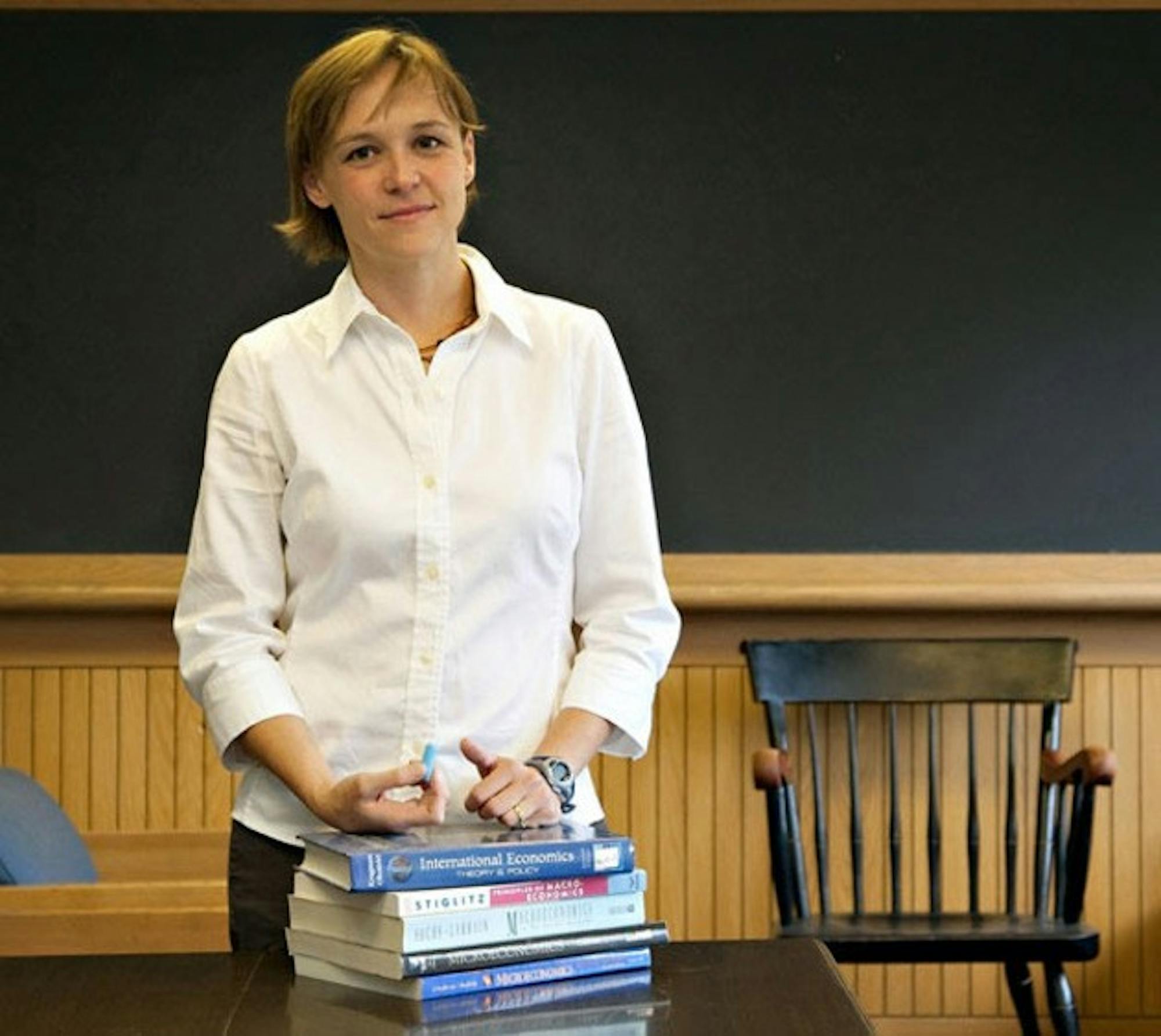Pavcnik, who was recently awarded the new Niehaus Family Professorship in International Studies, focuses her research on empirical industrial organization and international trade and trade policy.
Pavcnik said she is particularly aware of the connection between economic theories and their applications beyond the academic world. She said she seeks to provide her students with a "liberal education by bringing empiricism into the classroom" in accordance with the College's educational philosophy.
Every year, she said she updates her seminars' syllabi to include readings on economic events happening around the world.
"I want to provide my students with the tools, so they can understand how people and firms make decisions subject to constraints," she said.
A "personable and high-energy" professor, Pavcnik "cares deeply about her students," said economics professor Nancy Marion, who works with Pavcnik on an international economics course that both professors teach.
Although Pavcnik said it was "really hard to pinpoint" a single piece of research that qualified her for the endowed chair, she attributed the honor to her consistent focus on international economic issues. She also said she had the support of an "excellent team in international research."
"Aside from being a great teacher, she has done a lot of important and fascinating work that has significantly raised Dartmouth's profile in the world of economic research," economics professor Douglas Irwin said.
Pavcnik highlighted her "proudest piece of research," a collaboration with economics professor Eric Edmonds, the College's chair of international studies. The joint study examined the consequences of globalization on child labor a combination of economics and international studies, Pavcnik said.
This study challenged the common perception among consumers and policymakers in rich countries that trade with poor countries increases child labor rates by imposing a higher demand for production. Through an analysis of data from underdeveloped countries, Pavcnik and Edmonds found that a family's decision to send a child to work instead of school hinges more on the household's level of income than the state's demand for labor.
"Trade could actually reduce child labor if it raises the living standard [of a nation]," she said.
Pavcnik's colleagues said her finding is significant because it implicitly calls for an update on current theories of international trade policy, as well as changes to methods designed to end underage labor.
"She is very good at working with large data sets and using sophisticated empirical methods to uncover important economic findings," Marion said. "Her advice has been solicited by groups such as the [National Science Foundation] funding panel and the World Bank."
Pavcnik said she appreciated her new endowed professorship and its implications for her students and the College.
"The funds of the Niehaus professorship are foremost to benefit the College at large," she said. "I plan to use my own portion of funding to further research, purchasing more data sets and [getting more] research assistants. I love being a member of the economics department at Dartmouth because I get to interact with smart faculty and smart students."
Pavcnik has published over a dozen articles, many of which detail gross domestic product changes in under-developed countries and the ramifications of trade liberalization on international markets.
"If anyone in the world is interested in how globalization has affected workers in developing countries or how global competition affects productivity, the first place they look is at [Pavcnik's] work," Irwin said.
Pavcnik also holds the position of associate editor for several economic journals, including the American Economic Review, Journal of Development Economics and the Journal of International Economics. Her role is to provide input on submissions, help determine which articles should be published and give feedback to her peer researchers, she said.
Yet Pavcnik considers the time she spends with her students to be as important as her work researching and editing, she said.
"I consider the three components of my career to be integrated," she said.
This summer, Pavcnik plans to conduct research for a book chapter that she will write for the World Trade Organization and the International Labor Organization, she said. Additionally, she will expand on her studies of workers, firms and economic policies in countries including India and Brazil.
Pavcnik will also co-author a work that addresses how the U.S.-Vietnam Bilateral Trade Agreement, signed in 2001, affected household income for both countries.
"I remember having lunch with [Pavcnik] when she was in graduate school more than a decade ago, and then interviewing her for a position at Dartmouth a year or so later," Douglas said. "I couldn't be more pleased at the way her career has developed, and I'm very proud to have her as a colleague. She fully deserves the honor of becoming the Niehaus Family Professorship in International Studies."




